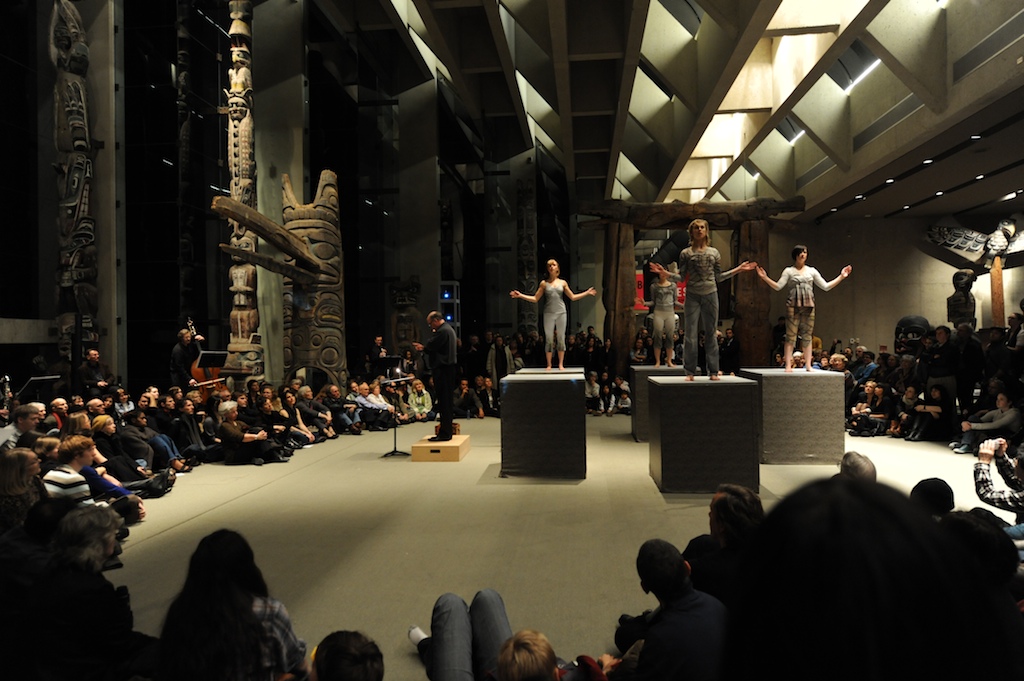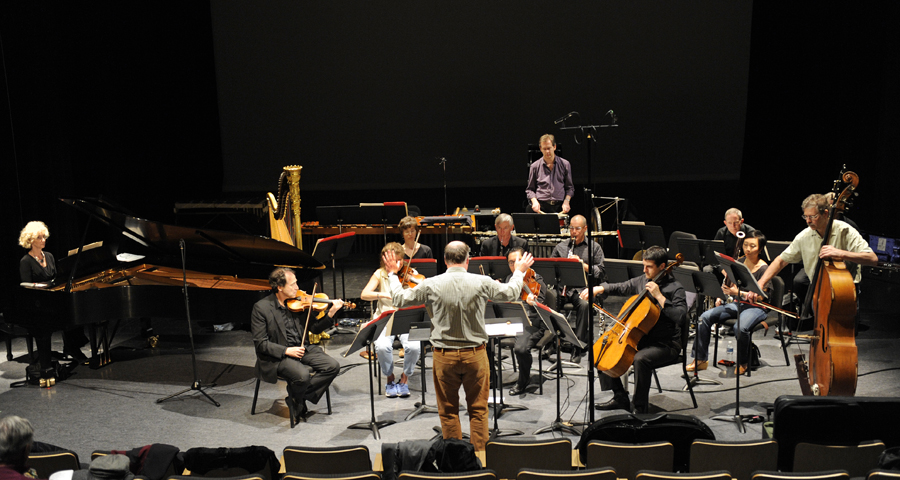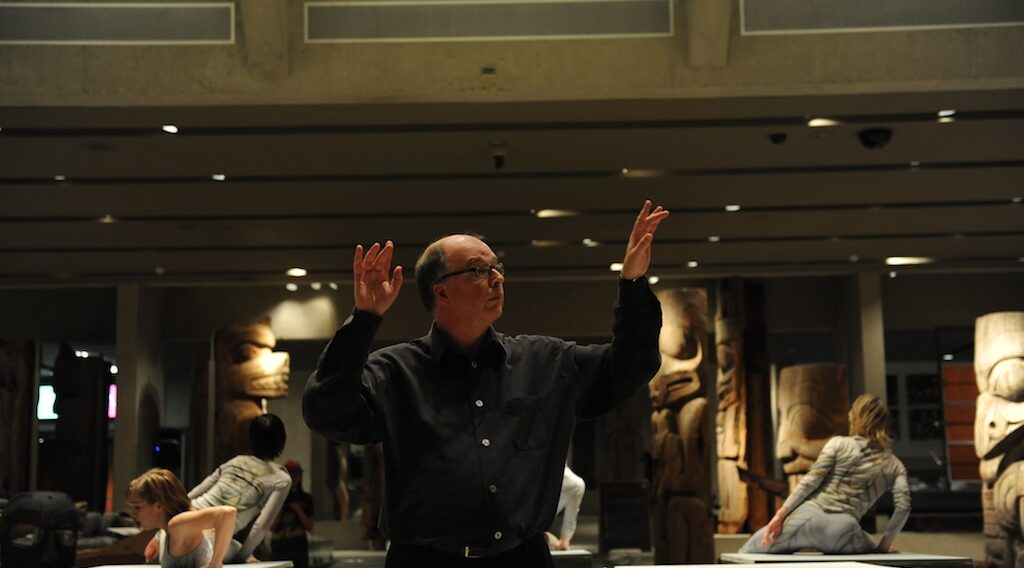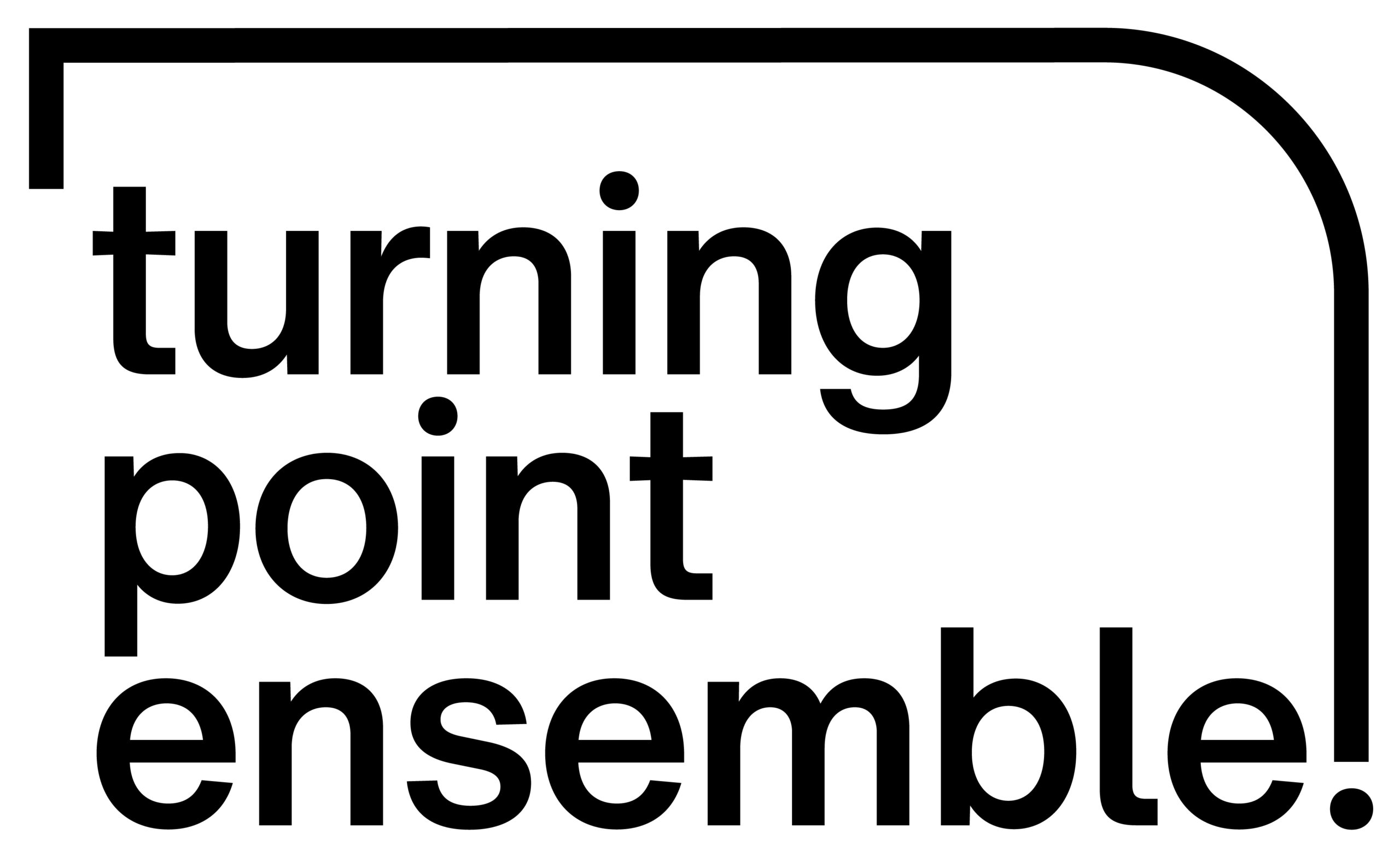Read below to learn more about our Artistic Director’s work and experience, his dreams for the ensemble and why In the Distance is such an important concert for Turning Point Ensemble.
You co-founded Turning Point Ensemble almost 20 years ago, what inspired you to embark on such an adventure?
I was approached by my colleague Jeremy Berkman about the idea of forming an ensemble that would play my music, as well as extraordinary repertoire from the early twentieth century. After taking a break from my years at Vancouver New Music, I was delighted to join Jeremy and other founding musicians in this ambitious project with the understanding that it would be not just for my music, but inclusive of all kinds of Canadian and international composers as well.
Had you conducted a large ensemble like TPE before? Why did you decide to form a large ensemble instead of a smaller chamber group?
Yes, I had conducted orchestral concerts of contemporary music with groups such as the CBC Vancouver Chamber Orchestra, Vancouver Symphony, National Art Centre Orchestra as well as years of conducting ensemble concerts with Vancouver New Music. The unique thing about a large ensemble of approximately 15 players like Turning Point Ensemble is that it fits in between medium chamber and orchestra. There is both the transparency and intimacy of chamber music as well as the full range of orchestral timbres in this size of ensemble.
You are a faculty member in the School for the Contemporary Arts at Simon Fraser University, could you tell us a bit about how teaching young composer has influenced you as a musician?
My years of teaching composers have always brought fresh energy and ideas into my musical life. I try to teach each student differently in order to help each composer find their own creative voice. I should also say that the School for the Contemporary Arts is a truly interdisciplinary environment with dance, film, theatre, visual art and critical studies in addition to music. As a result, I have had the chance to collaborate with amazing colleagues from different disciplines throughout my career, as well as teach students working in different artforms. As a composer who has often been influenced by the visual arts and various other influences outside of music, this transdisciplinary environment has been a rich source of inspiration.
What are the challenges and joys of conducting a large ensemble like TPE? Have you written any pieces for the group?
The players in the ensemble are among the best in Vancouver and are fully committed to achieving top performances of difficult repertoire. This is a treat for me and has certainly raised the quality of my work as a conductor. We work as a chamber music ensemble in a non-hierarchical way, so we are always learning together and accountable to each other.
I have written several pieces for Turning Point Ensemble including The Widening Gyre for our very first concert in January 2003, and more recently the Cello Concerto for Ariel Barnes and the ensemble which we recorded on Orlando records.

If you could make all your TPE wishes come true, what would you want the ensemble to achieve in the next coming years?
Wow, what a question! I would love us to be able to expand our funding base a bit so that we have a somewhat larger season and have the ability to do more touring and recording.
And now thinking realistically, what are the future projects that TPE has in the works that you are most excited about?
I am excited about a concert we are planning for this fall that will include music by composers displaced from their home countries due to violence, discrimination or other factors. I also am very motivated by large interdisciplinary projects.
At the moment I am working with Tajik-Canadian composer Farangis Nurulla-Khoja on an opera she is composing based on The Conference of the Birds, a 13-century poem by Sufi poet Farid ud-Din Attar.
Has the COVID-19 pandemic changed anything about how the conductor relates to the musicians on stage?
Musicians have been spaced out more due to social distancing, and we have worked and performed with masks except for the wind players. We have been all working a bit harder to communicate through our masks in rehearsal, and the spacing has been a bit different but overall, I would say we were very relieved to get back together now for concerts after a period of about a year where we only did small projects such as our 1 + 1 + 1… a film series.
If you could choose any composer (living or dead) for TPE to premiere a piece for, who would it be?
That is a hard question for me, because I have always tried to approach every piece as unique and significant. I especially like doing premieres and have also had some special experiences with some superb composers including Sofia Gubaidulina, Giya Kancheli, Rudolf Komorous, James MacMillan, Steve Reich, Toru Takemitsu, and Judith Weir.
Tell us about In the Distance, this concert will be one of the first times that Turning Point Ensemble will be conducted by someone else, how does this make you feel? What are you most looking forward to about this opportunity?
In the Distance is a fantastic opportunity for Vancouver audiences to hear the best of Croatian new music conducted by composer/conductor Berislav Šipuš. This is part of a wonderful cultural exchange we are doing with the Cantus Ensemble in Zagreb which has already included me conducting a concert of Canadian music (all of written for Turning Point Ensemble) with their musicians in Zagreb back in September 2019. We will in 2023/24 also have tours of Cantus Ensemble to Vancouver and Turning Point Ensemble to Croatia.
There have been a couple cases where other conductors have worked with Turning Point Ensemble, but generally as a member of the ensemble, I have had the pleasure of being the conductor. I am looking forward to seeing our musicians bring alive this music with a conductor who knows each piece intimately. It will be a true cross-cultural experience for all including the audience.
Finally, I feel that there are interesting similarities between the cultures of Canada and Croatia. Both countries have distinctive aesthetics and several outstanding composers that blend local influences with international contemporary trends, and in my opinion, both cultures deserve more international recognition for the quality and individuality of their work.
To learn more and get tickets for In the Distance, click here.


